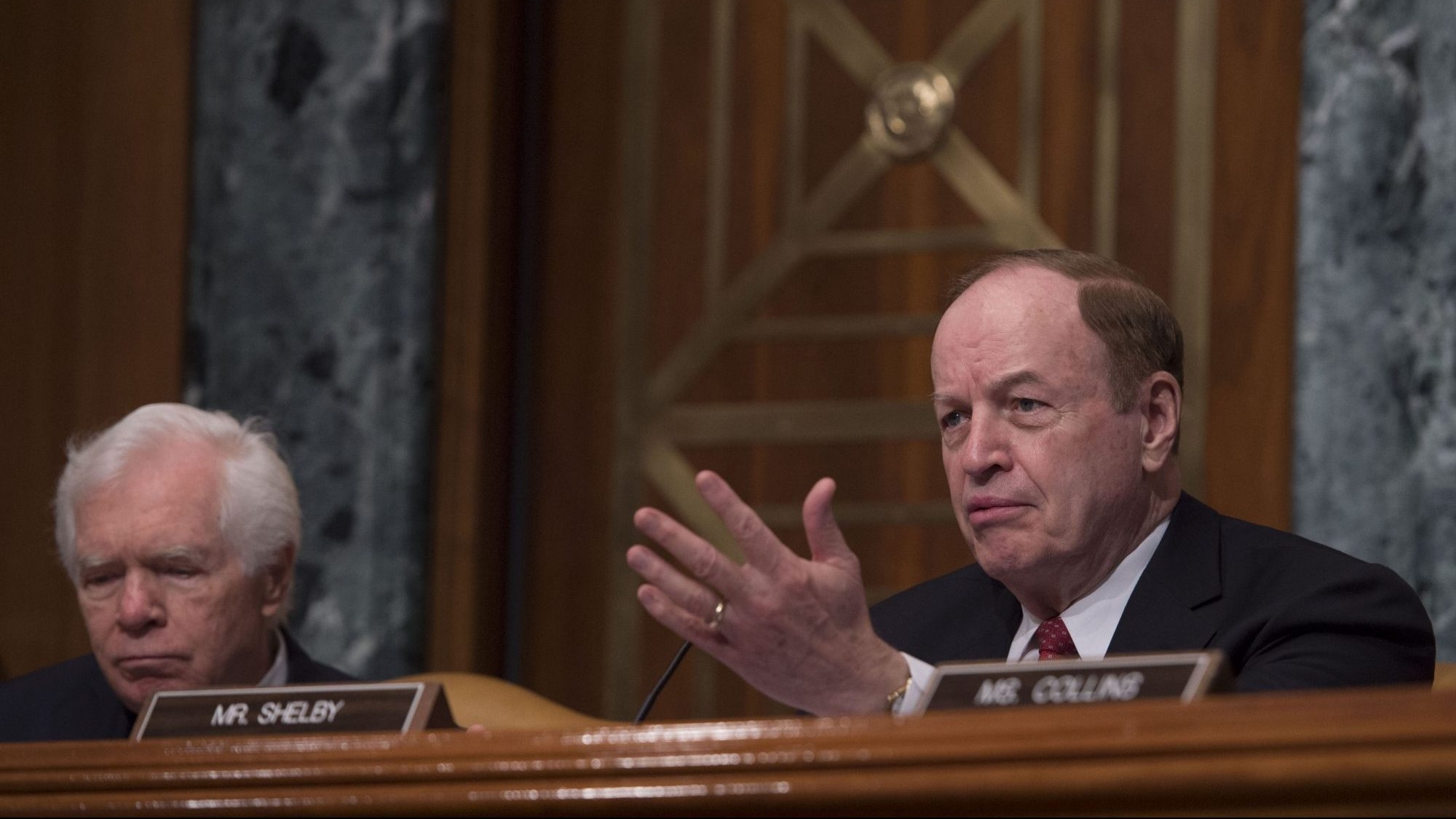Last month the Congress passed a spending bill to keep the government funded through the end of the currenct fiscal year, which ends September 30.
Wednesday, the Senate Appropriations Committee which is now chaired by Alabama’s own U.S. Sen. Richard Shelby, has now begun working on the FY 2019 appropriations bills.
On Wednesday, Chairman Shelby and his committee began with reviewing the FY19 Budget Request for the Missile Defense Agency. Senator Shelby is also now the chairman of the Appropriations Subcommittee on Defense.
Shelby said, “I am pleased to welcome Lieutenant General Samuel Greaves, the Director of the Missile Defense Agency for a review of MDA’s budget request and an update on critical missile defense programs programs.”
“The Fiscal Year 2019 budget request for the Missile Defense Agency is $9.9 billion, a decrease of more than $1.5 billion from amounts appropriated for Fiscal Year 2018,” Shelby said. “Last year, under the leadership of Chairman Cochran, this Committee led the charge in providing additional resources to the Missile Defense Agency to address the increasing missile threat to our homeland. We will carefully review the budget request to understand the impact of the proposed funding reductions,”
“The President has said that we are committed to expanding and improving our state-of-the-art missile defense system,” Shelby said. “General Dunford, the Chairman of the Joint Chiefs of Staff, has warned us that we need to be concerned about ensuring that our ballistic missile defense capability keeps pace with the increasing threat.”
Greaves in his written testimony said that “nearly all of our adversaries are concerned with U.S. missile defenses and have devised various means to complicate missile defense operations.”
“For example, our adversaries are developing missile defense countermeasures, hypersonic glide vehicles and long-range, nuclear-armed missiles that are capable of posing a direct threat to the United States,” Shelby said. “I hope that you will share with this Committee your best advice on how we can advance the state of our missile defenses against this evolving and increasing threat.”
Greaves told the committee that the U.S. is just five to seven years away from being able to use F-35 joint strike fighters to destroy enemy ballistic missiles.
“I’d say six to seven years to essentially work out the Concept of Operations (and) develop the capabilities — (whether) it’s sensor-based or a new fast missile that’s hung on the bottom of an F-35 for the BMDS (Ballistic Missile Defense) mission — integrate those capabilities, test them, and deliver them into a theater of operations,” Greaves said.
Once the new air to air missile is developed and deployed, the U.S. would have the capability to shoot down enemy missiles in any theatre where we have an airbase or aircraft carrier as the F-35 is planned to be the backbone of U.S. combat air packages for decades to come. An F-35 can not chase an ICBM into space so there would be a very small window for the plane to track down and kill the missile after a launch.
Shelby has been serving the people of Alabama in the U.S. Senate since his election in 1986.
Original reporting by Breaking Defense News Sydney J Freedburg contributed to this report.























































